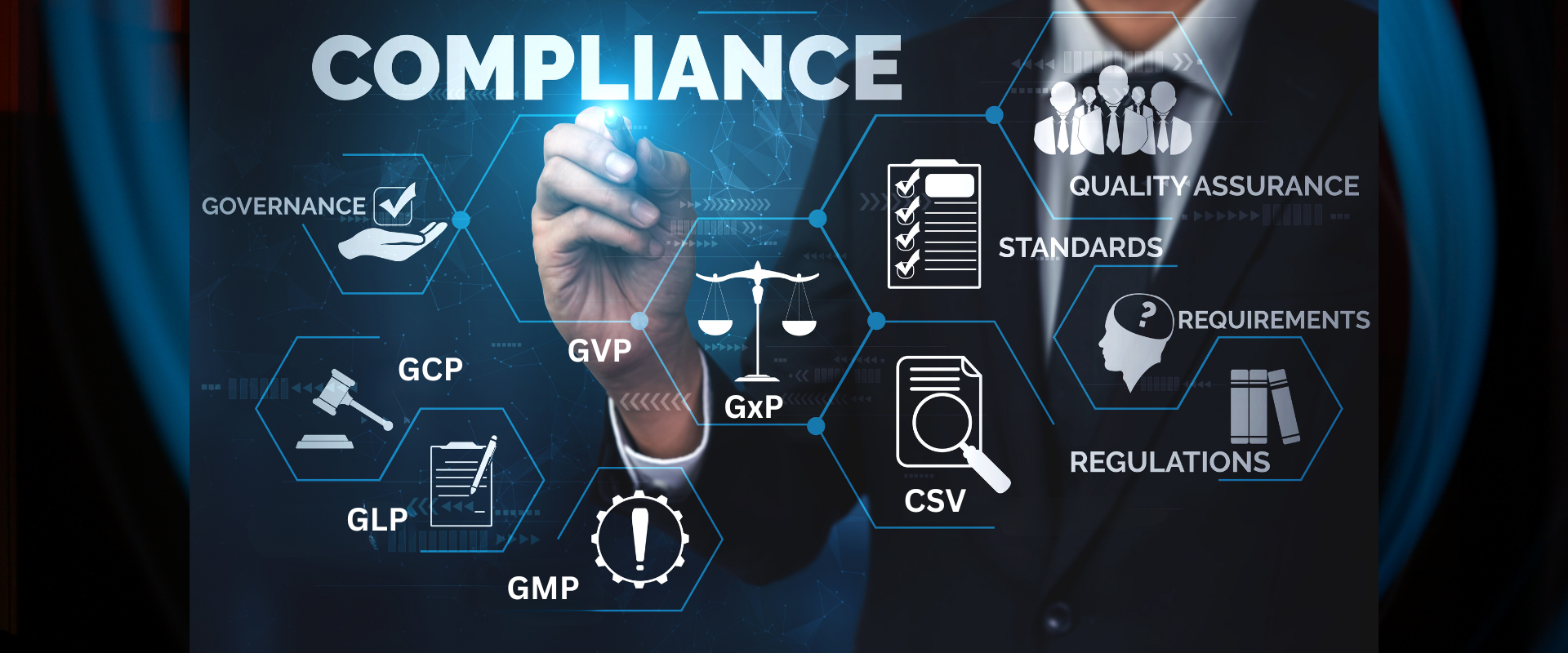
YOUR TRUSTED PARTNERS FOR QUALITY ASSURANCE AND REGULATORY SERVICES

EXCELLENCE IN AUDITING, REGULATORY CONSULTING, AND GLOBAL COMPLIANCE SOLUTIONS

YOUR TRUSTED PARTNERS FOR GXP AUDITING SERVICES
-
 Webinar and Training
Webinar and TrainingYOUR TRUSTED PARTNERS FOR QUALITY ASSURANCE AND REGULATORY SERVICES
-
 Webinar and Training
Webinar and TrainingEXCELLENCE IN AUDITING, REGULATORY CONSULTING, AND GLOBAL COMPLIANCE SOLUTIONS
-
 Webinar and Training
Webinar and TrainingYOUR TRUSTED PARTNERS FOR GXP AUDITING SERVICES
QPPV Services
Why QPPV Services are Required
In the highly regulated pharmaceutical industry, ensuring drug safety and compliance with regulatory standards is paramount. The Qualified Person for Pharmacovigilance (QPPV) plays a crucial role in maintaining these standards. A QPPV is responsible for the oversight of the safety profile of pharmaceutical products and ensures that all pharmacovigilance activities are conducted in accordance with regulatory requirements. The key reasons why QPPV services are essential include:
- Regulatory Compliance: QPPV services ensure that pharmaceutical companies meet the stringent regulatory requirements for drug safety monitoring.
- Patient Safety: QPPVs are instrumental in safeguarding public health by monitoring adverse drug reactions and ensuring timely reporting.
- Risk Management: Effective risk management and mitigation of potential safety issues are core responsibilities of a QPPV.
- Regulatory Liaison: QPPVs act as a primary point of contact with regulatory authorities ensuring clear and effective communication regarding pharmacovigilance matters.
Regulatory Framework for QPPV Services
United Kingdom
In the UK, the regulatory framework for pharmacovigilance is governed by the Medicines and Healthcare products Regulatory Agency (MHRA). The relevant regulations include:
- Human Medicines Regulations 2012 (SI 2012/1916): This regulation outlines the requirements for pharmacovigilance and the role of QPPV.
- Guidance on the Qualified Person Responsible for Pharmacovigilance (QPPV): Provided by MHRA, this guidance details the responsibilities and qualifications required for a QPPV.
Europe
The European Medicines Agency (EMA) oversees pharmacovigilance activities within the European Union (EU). The key regulations include:
- Regulation (EU) No 1235/2010 and Directive 2010/84/EU: These legal frameworks establish the requirements for pharmacovigilance systems and the role of QPPV.
- Good Pharmacovigilance Practices (GVP): A set of guidelines provided by the EMA to ensure the effective functioning of pharmacovigilance systems.
Northern Ireland
Northern Ireland follows EU pharmacovigilance regulations due to the Northern Ireland Protocol. Therefore, the same EMA regulations and GVP guidelines apply.
GCC Countries
In the Gulf Cooperation Council (GCC) region, each member state has its own regulatory authority overseeing pharmacovigilance. Some key references include:
- Saudi Food and Drug Authority (SFDA): Saudi Arabia's SFDA provides specific guidelines for pharmacovigilance, including QPPV requirements.
- Gulf Health Council (GHC): The GHC provides overarching guidelines that member states, including the UAE, Oman, Qatar, Bahrain, and Kuwait, adhere to for pharmacovigilance activities.
QPPV Services Provided by CRQA
At CRQA, we offer a comprehensive range of QPPV services tailored to meet the needs of pharmaceutical companies operating in various regulatory environments. CRQA QPPV services include:
- QPPV Representation: Acting as the QPPV for companies ensuring compliance with regulatory requirements in the UK, EU, Northern Ireland, and GCC countries. Our experienced team provides continuous oversight and strategic direction for all pharmacovigilance activities.
- Pharmacovigilance System Setup: Establishing and maintaining robust pharmacovigilance systems to ensure effective drug safety monitoring. This includes creating Standard Operating Procedures (SOPs), developing signal detection mechanisms, and setting up safety databases.
- Adverse Event Reporting: Managing the collection, assessment, and reporting of adverse drug reactions to the relevant regulatory authorities. We ensure timely and accurate reporting to comply with local and international regulations.
- Risk Management Plans (RMPs): Developing and implementing RMPs to identify, assess, and mitigate potential risks associated with pharmaceutical products. Our team designs comprehensive RMPs tailored to specific product profiles and regulatory requirements.
- Periodic Safety Update Reports (PSURs) / Periodic Benefit-Risk Evaluation Reports (PBRERs): Preparing and submitting regular safety reports that provide an evaluation of the benefit-risk balance of products. These reports are critical for ongoing regulatory compliance and safety monitoring.
- Signal Detection and Management: Implementing advanced techniques for signal detection to identify potential safety concerns early. Our experts analyze data from various sources to detect, evaluate, and manage safety signals effectively.
- Safety Data Exchange Agreements (SDEAs): Drafting and managing SDEAs to ensure clear and efficient communication of safety information between partners. We ensure that these agreements meet regulatory standards and facilitate smooth information exchange.
- Pharmacovigilance Audits and Inspections: Conducting internal audits to assess the compliance and effectiveness of pharmacovigilance systems. We also provide comprehensive support for regulatory inspections, including preparation, on-site assistance, and follow-up actions.
- Training and Support: Providing training for company staff on pharmacovigilance practices and regulatory requirements. Our training programs are designed to enhance the knowledge and skills of your team, ensuring compliance and promoting a culture of safety.
- Benefit-Risk Assessment: Conducting thorough benefit-risk assessments to support regulatory submissions and ongoing product safety evaluations. Our assessments help in making informed decisions about the safety and efficacy of products.
- Pharmacovigilance Agreements (PVAs): Creating and managing PVAs to outline responsibilities and procedures for pharmacovigilance activities with partners and contractors. These agreements ensure clarity and accountability in safety monitoring processes.
- Compliance Monitoring: Continuously monitoring compliance with pharmacovigilance obligations and regulations. We provide regular compliance reports and recommend corrective actions to address any identified gaps.
- Regulatory Submissions: Assisting with the preparation and submission of pharmacovigilance documents to regulatory authorities. We ensure that all submissions meet regulatory requirements and deadlines.
- Global Pharmacovigilance Strategy: Developing global pharmacovigilance strategies to manage product safety across multiple regions. Our strategies are tailored to the specific needs and regulatory landscapes of each market.
Contact us today to discover how our QPPV Services can help you ensure drug safety and regulatory compliance across the globe.
Connect with us at bd@crqa.in or +91 98100 68241.
© Copyright 2023. All Rights Reserved.


